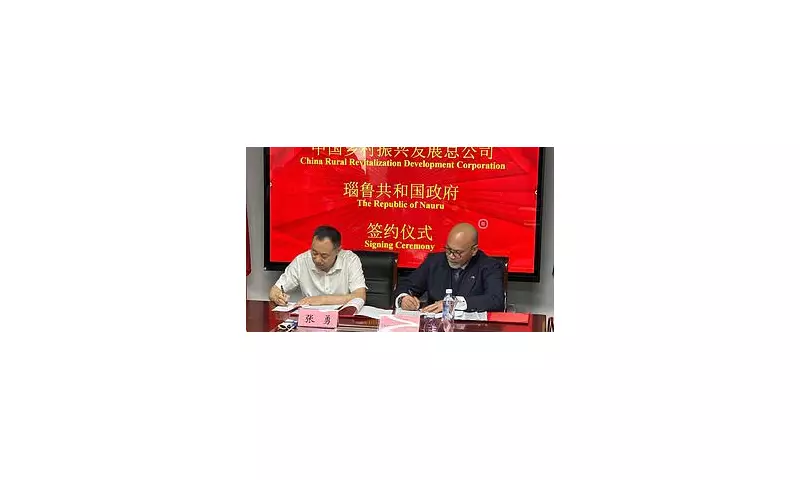
In a move that has sent shockwaves through diplomatic circles in Canberra, the tiny Pacific nation of Nauru has inked a controversial new agreement with China, dramatically expanding cooperation on policing and security matters.
The deal, confirmed by Nauru's government, represents a significant strategic coup for Beijing and a substantial setback for Australian influence in a region it has long considered its backyard. It comes just months after Nauru severed its diplomatic ties with Taiwan in favour of Beijing.
A Blow to Australian Regional Strategy
Australian officials were reportedly caught off-guard by the announcement, which threatens to undermine longstanding security arrangements. The pact is seen as a direct challenge to Australia's leadership within the Pacific Islands Forum and its efforts to counter China's growing military and political footprint.
While full details remain scarce, the memorandum of understanding is believed to encompass training for Nauru's police force, cybersecurity collaboration, and broader 'law enforcement and security' cooperation. This deepens China's inroads into a region where Australia has traditionally held sway.
Nauru's Strategic Gambit
For Nauru, a nation of just 10,000 people, the agreement is likely a calculated play for economic and political advantage. The island state has previously hosted an Australian-run immigration detention centre, a significant source of revenue, and its recent pivot towards Beijing suggests a diversification of its international partnerships.
Analysts suggest this new alignment is part of a broader pattern of Pacific nations playing larger global powers against each other to maximise aid, investment, and political support.
Regional Ramifications and the Road Ahead
This development will undoubtedly escalate tensions between Australia and China, who are locked in an intense struggle for soft power and strategic influence across the South Pacific. It follows China's security pact with the Solomon Islands in 2022, which similarly alarmed Western capitals.
The Australian government now faces mounting pressure to reassess its engagement strategy with its Pacific neighbours to prevent further erosion of its diplomatic position. All eyes will be on Canberra's response to what many are calling a serious geopolitical setback.





